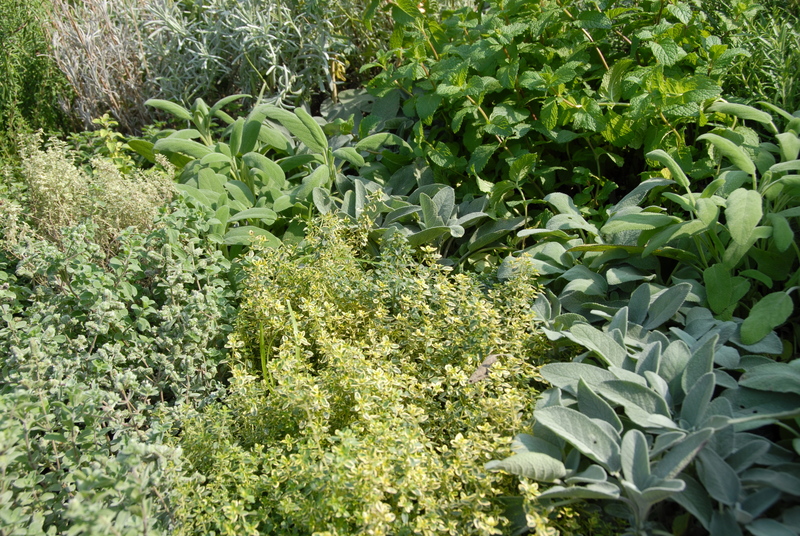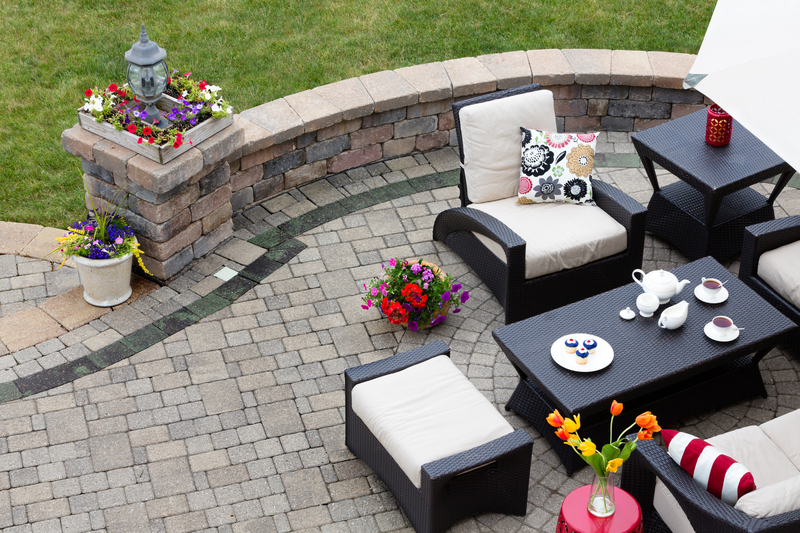Eco-Gardening: A Climate Action You Can Start Today
Posted on 25/08/2025
Eco-Gardening: A Climate Action You Can Start Today
Eco-gardening is rapidly becoming one of the most accessible ways individuals can combat climate change from their own backyards. With concerns about rising temperatures and the health of our planet, embracing eco-friendly gardening practices isn't just a hobby--it's a form of climate action. In this comprehensive article, we'll explore exactly what eco-gardening means, its importance, and how you can start eco-gardening today, no matter the size of the space you have.
What is Eco-Gardening?
Eco-gardening, also referred to as ecological gardening or *environmentally-conscious gardening*, revolves around practices that prioritize sustainability, biodiversity, and the reduction of negative impacts on the environment. Unlike traditional gardening, which may rely on synthetic chemicals, heavy water use, and monocultures, eco-gardening harnesses natural processes and local ecosystems to create vibrant, productive gardens.
- Minimizing chemical input: Using organic alternatives instead of synthetic pesticides and fertilizers.
- Supporting biodiversity: Growing a variety of native plants to attract pollinators and beneficial insects.
- Resource conservation: Harvesting rainwater, composting, and reducing waste wherever possible.

Why Eco-Gardening is Crucial for Climate Action
*Eco-gardening is more than just a trend;* it's a meaningful step individuals can take to address the climate crisis. Below are key reasons why making the switch to eco-friendly gardening habits has a real impact:
1. Carbon Sequestration
Plants naturally remove carbon dioxide from the atmosphere and store it--a process known as carbon sequestration. By cultivating thriving gardens full of diverse plant life, you help absorb greenhouse gases that would otherwise contribute to global warming.
2. Reducing Chemical Run-off
Traditional gardening practices often rely on synthetic fertilizers and pesticides, which can leach into waterways, harm wildlife, and disrupt ecosystems. Eco-gardening eliminates or dramatically reduces these chemicals, preventing pollution and fostering healthier soil and water systems.
3. Water Conservation
Water scarcity is a growing challenge around the world. Eco-gardening features, such as mulch, drought-tolerant plants, rain barrels, and drip irrigation, can reduce water consumption while maintaining a lush and productive garden.
4. Biodiversity Enhancement
Ecological gardening encourages planting native species and creating habitats for birds, bees, butterflies, and beneficial insects. This boosts local biodiversity, which is essential for ecosystem resilience in the face of climate changes.
Benefits of Eco-Gardening for Your Home and Community
- Healthier produce: Grow your own fruits and vegetables free from harmful chemicals and pesticides.
- Lower grocery bills: Decrease spending by supplementing store-bought produce with homegrown food.
- Enhanced well-being: Spend more time outdoors and experience the therapeutic benefits of working with nature.
- Community connection: Share surplus harvest with neighbors, participate in local gardening clubs, and inspire others to adopt sustainable habits.
How to Start Eco-Gardening Today: Practical Steps
Getting started with sustainable gardening may seem daunting, but you can begin with just one or two simple actions and expand your efforts over time. Here's how:
Select the Right Plants
Choose native plants and climate-adapted species for your region. These plants require fewer resources to thrive, support local pollinators, and are often more resilient to pests and diseases.
- *Research local wildflowers, shrubs, and trees.*
- Visit native plant nurseries or consult local gardening experts.
- Integrate a mix of perennials and annuals for year-round interest and habitat.
Compost Kitchen and Yard Waste
Instead of sending food scraps and yard clippings to the landfill, start a compost pile or bin. Composting diverts waste from landfills and returns vital nutrients to your garden soil.
- Add fruit and vegetable peels, coffee grounds, eggshells, and garden trimmings.
- Avoid meat, dairy, and oily foods, which can attract pests.
- Turn the pile regularly to speed up decomposition.
Reduce Chemical Use with Organic Alternatives
Switch conventional pesticides and fertilizers for organic options:
- Use neem oil, insecticidal soap, or homemade garlic spray for pests.
- Enrich soil with compost, worm castings, or natural amendments like rock phosphate and greensand.
- Practice crop rotation and companion planting to minimize pest outbreaks and improve plant health.
Conserve Water
Embrace water-wise gardening techniques:
- Mulch beds with straw, wood chips, or leaves to retain moisture and suppress weeds.
- Install a rain barrel to collect and reuse rainwater for irrigation.
- Choose drought-resistant plants and group plants with similar water needs together.
- Water early or late in the day to minimize evaporation.
- Use drip irrigation for precise, efficient watering.
Create Wildlife Habitats
Transform your garden into a haven for birds, bees, and butterflies:
- Plant flowering species that provide nectar throughout the seasons.
- Install bee houses or birdhouses for nesting.
- Avoid pesticides that can harm pollinators and beneficial insects.
- Leave some areas "wild" with leaf litter and logs for small animals and insects.
Practice No-Dig or Low-Till Gardening
Preserving soil structure is vital for soil health and carbon storage. *No-dig gardening* means adding compost and amendments on top of existing soil, rather than tilling, which can disrupt beneficial soil organisms and increase erosion.
- Suppress weeds with thick mulch rather than hoeing or tilling.
- Plant cover crops during the off-season to add organic matter and prevent erosion.
Grow Your Own Food
Even if you only have a balcony or small yard, growing some of your own food reduces the environmental footprint associated with transporting, packaging, and storing supermarket produce. Start with easy crops like lettuce, tomatoes, or herbs in containers or raised beds.
Advanced Eco-Gardening Techniques
Permaculture Principles
Permaculture is a set of design principles that mimic natural ecosystems, making your garden more productive and resilient.
- Design zones based on how often you'll visit them--put herbs close to the kitchen, for example.
- Use vertical gardening or "guilds" (plant groupings) to maximize limited space.
- Integrate fruit trees with ground cover and nitrogen-fixing plants.
Rain Gardens
A rain garden is a shallow depression planted with water-loving plants to capture and slowly absorb rainwater. This reduces runoff, enhances groundwater recharge, and filters pollutants before they reach waterways.
Greywater Systems
Repurpose gently-used household water (from sinks, showers, laundry) with a greywater system to irrigate the landscape--saving precious potable water.
The Social Impact of Eco-Gardening
Eco-gardening isn't just about the plants--it's about people. Urban community gardens and shared green spaces can:
- Foster community engagement.
- Address food insecurity.
- Create opportunities for education and intergenerational connection.
By participating in or supporting a local eco-garden, you become part of a grassroots movement for climate resilience and social change.
Overcoming Common Challenges in Eco-Gardening
Dealing with Pests Organically
Resist the urge to reach for chemical solutions. Instead:
- Encourage predators such as ladybugs, birds, and frogs by providing habitat and water.
- Hand-pick larger pests like caterpillars or snails.
- Rotate crops yearly to disrupt pest life cycles.
Managing Weeds Naturally
Mulch is your best friend. *Organic mulches* (wood chips, straw) block light and suppress weeds while enriching the soil. Pull weeds by hand or use a hoe for light maintenance, aiming to remove them before they set seed.
Building Soil Health
*Healthy soil is alive.* The foundation of eco-gardening is nurturing a vibrant soil ecosystem, rich in microbial life and organic matter. Regularly add compost, avoid compacting soil, and minimize disturbance for optimal soil structure and fertility.
Eco-Gardening for Every Space
You don't need a large backyard to make a difference. Here's how to adapt eco-gardening to any setting:
- Urban balconies: Grow herbs, greens, and flowers in containers. Install small-scale worm composters.
- Window boxes: Choose pollinator-friendly flowers and enjoy color and bee action up close.
- Community plots: Work together with neighbors to build shared gardens in vacant lots or parks.
- Rooftop gardens: Green roofs absorb stormwater and offer insulation, reducing energy needs.

Resources to Learn More and Get Inspired
- Pollinator Partnership: Tips for supporting pollinators in your garden.
- National Wildlife Federation's Garden for Wildlife Program: Guidance on creating wildlife-friendly habitats.
- EPA: Rain Gardens: How to design, plant, and maintain a rain garden.
- Connect with local extension services or community gardening organizations for region-specific advice.
- Check out books and online forums dedicated to *permaculture*, *organic gardening*, and *urban agriculture*.
The Future is Green: Start Your Eco-Gardening Journey Today
Eco-gardening represents one of the most powerful ways ordinary people can take action against climate change while enjoying the beauty and bounty of nature at home. Whether you're transforming a sunny balcony or a spacious backyard, every step toward sustainable gardening--however small--helps restore balance to our environment.
*Ready to take the first step?* Choose a native plant, compost your kitchen scraps, or simply set aside a patch of wildflowers for pollinators. Collectively, our actions grow into a greener, more resilient world.
Start your eco-friendly gardening adventure today and join the global movement for climate solutions--one garden at a time.
Latest Posts
Fast-Growing Hedges: 9 Privacy Boosters to Consider
Container gardening for beginners: What to know
The Art of Zen: Designing a Peaceful Garden Retreat



